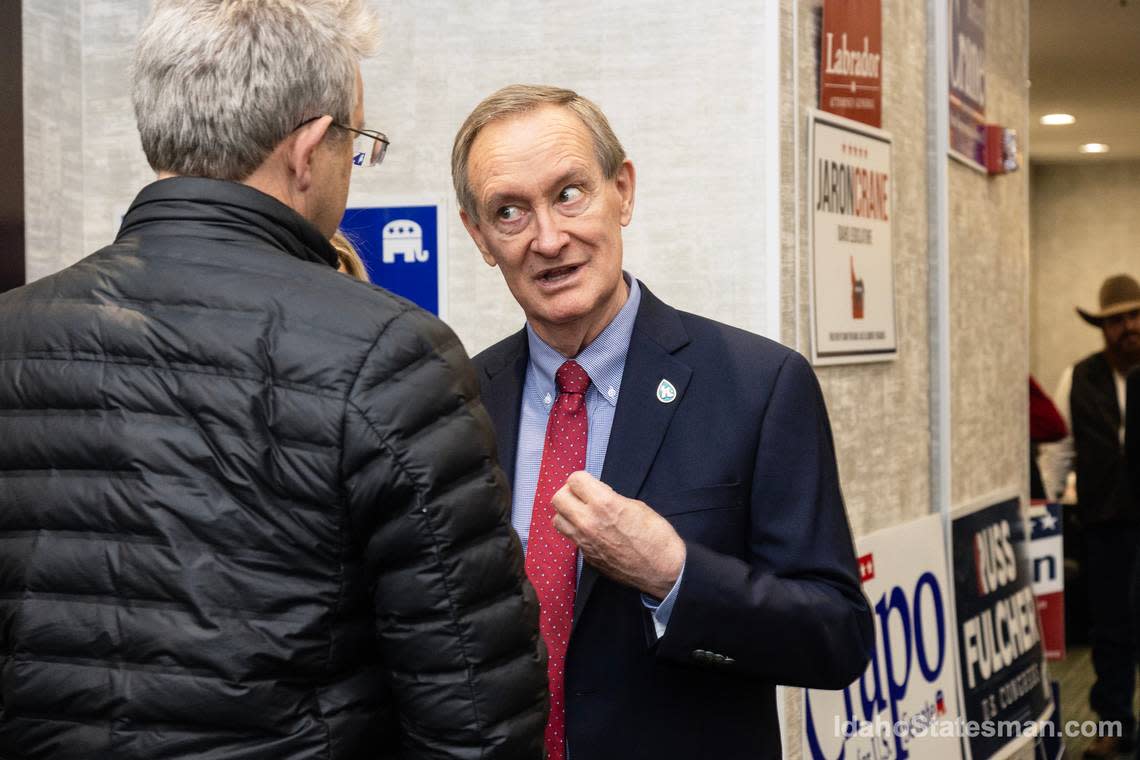Why did the farmworker bill die? Because our senator put Wall Street ahead of Idaho | Opinion

Nobody should live in fear that their life will be completely upended because they visit their brother’s grave.
But that’s exactly what happened to an undocumented farmworker, “Maria,” as Idaho Statesman reporter Rachel Spacek reported Dec. 23. Immigration and Customs Enforcement found Maria there and deported her. If it happens again, she could be separated from her kids, so returning is out of the question.
All she wants, she said, is a little freedom. And if all members of Idaho’s delegation — especially U.S. Sen. Mike Crapo — had justice in their hearts, Maria might have it.
Rep. Mike Simpson has shown such a commitment to justice. He has worked hard, and alone among Idaho’s delegation, to advance the Affordable and Secure Food Act, a compromise bill supported both by agriculture and the United Farm Workers that would reform the H2-A visa program and provide undocumented farmworkers with a path to permanent legal residence.
But, as Spacek reported, Crapo pulled out of negotiations in the Senate to have the bill included in a year-end spending package. He refused to say why, but the reason seems obvious: He had bigger priorities.
There are agricultural operations throughout Idaho begging for workers. Idaho dairies hope to have about one worker for every 100 cows, but right now it’s about one for every 140, industry spokesperson Rick Naerebout told Spacek in a prior story.
That level of understaffing is grave, and it necessarily affects production. This is taking money out of the Idaho economy and contributing to inflation, a point Simpson made when urging the Senate to act.
But Crapo’s priorities are not the same as an Idaho farmer’s or an undocumented worker’s. There’s only so much you can do, and he’s got to deliver for his real bosses: the folks from Wall Street that fill his campaign coffers.
He’s been working hard for them this month.
While Crapo couldn’t find a way to “yes” for farmworkers and Idaho’s agricultural operations, he was able to get a set of obscure financial regulations tucked into the bill authorizing military spending — the so-called Financial Data Transparency Act.
If you’re running a high-frequency trading firm focused on municipal bonds, this legislation is pure gold. The most important provision in the bill is to make local government financial reports “machine-readable.”
It won’t be any easier for you to find out what’s going on in your city budget — in fact, municipal accounting boards warn it will likely get harder and local budgets will be less transparent. But it will be easier to plug municipal financial information into big data applications. So for our bond trader, a whole new world of ways to make money is blossoming.
If you are a city or a county official, however, you’re going to have to put in place a whole new reporting system. The feds haven’t offered up any money to implement that system — which is why cities and counties were sounding the alarm and opposing the bill as an unfunded federal mandate.
And if you’re a farmer living in Idaho, the only place you’re likely to notice this new regulation is in your property tax bill. Someone has to spend money to make the bond trader’s job easier, and it might as well be you.
None of this is surprising from Crapo, who long ago decided to put his own interests ahead of Idaho’s in the U.S. Senate. There is simply a lot more campaign cash to be had on Wall Street than in an Idaho potato field.
But at least we know how to get Crapo’s attention.
If Idaho’s undocumented farmworkers don’t want to live in fear of losing their families, maybe they should consider becoming investment bankers. And if Idaho farmers want their priorities represented in the Senate, perhaps they should look into bond trading.
Statesman editorials are the unsigned opinion of the Idaho Statesman’s editorial board. Board members are opinion editor Scott McIntosh, opinion writer Bryan Clark, editor Chadd Cripe, newsroom editors Dana Oland and Jim Keyser and community members Johanna Jones and Maryanne Jordan.
